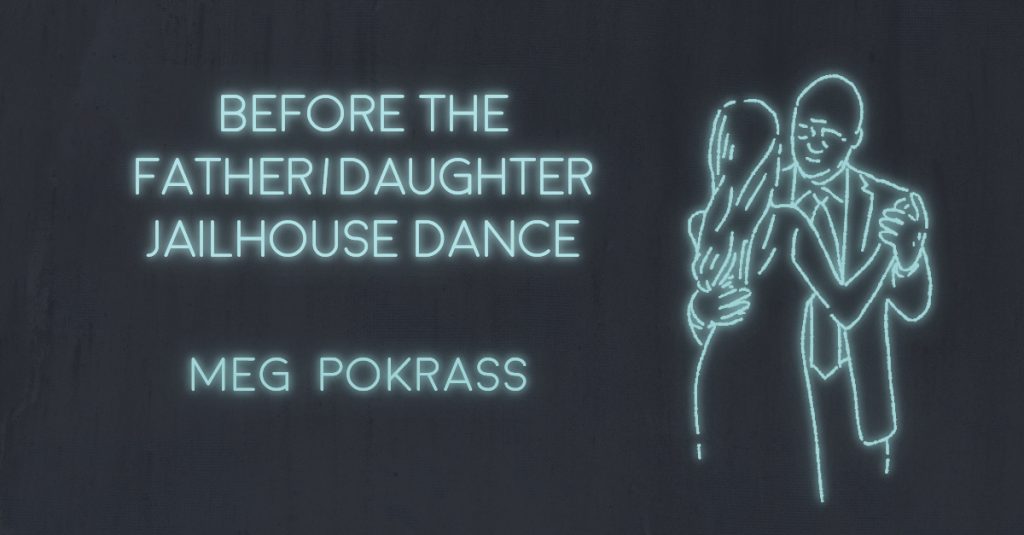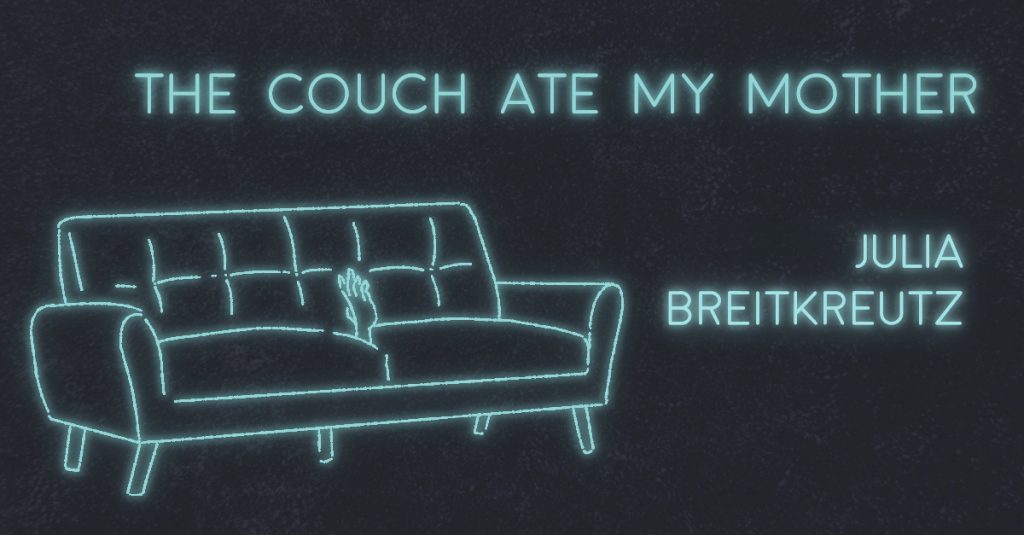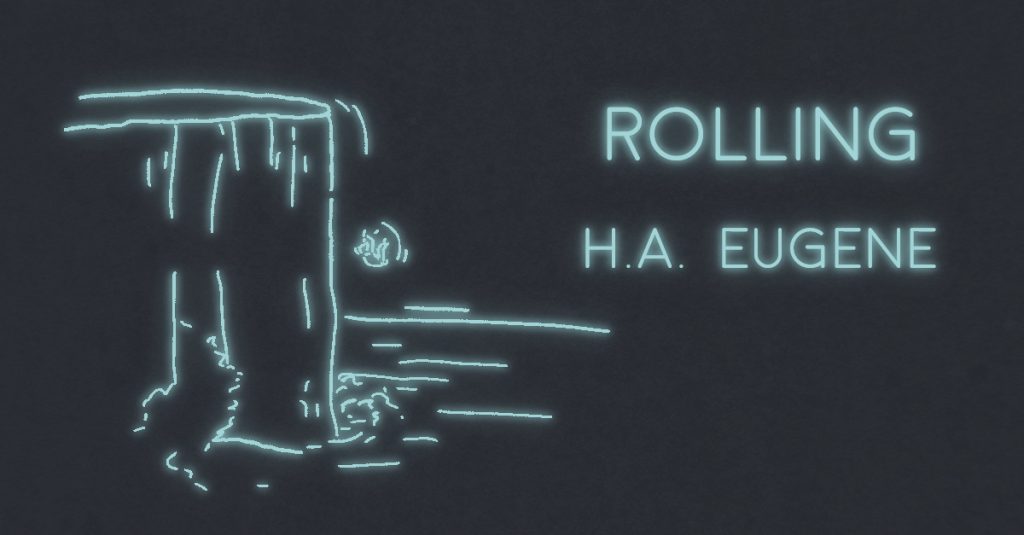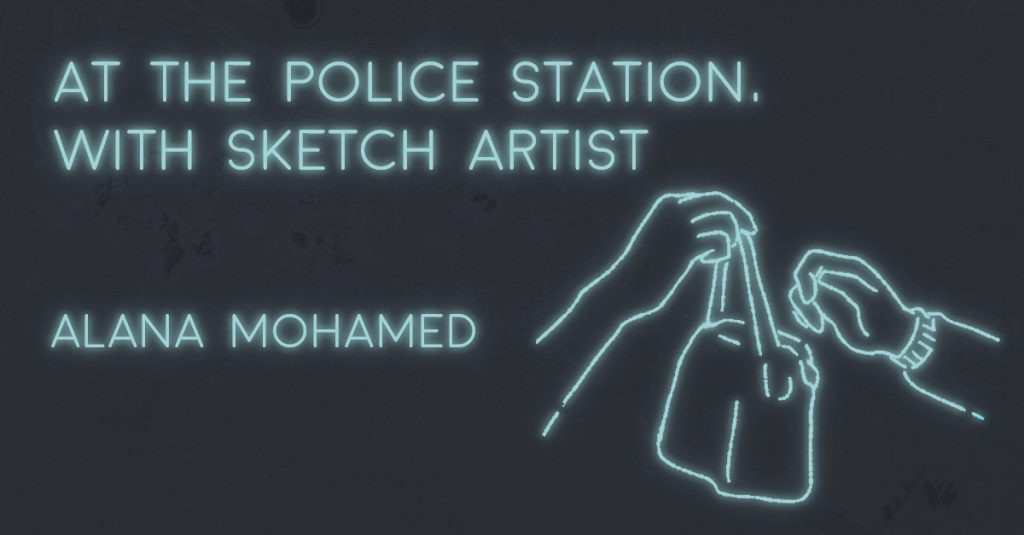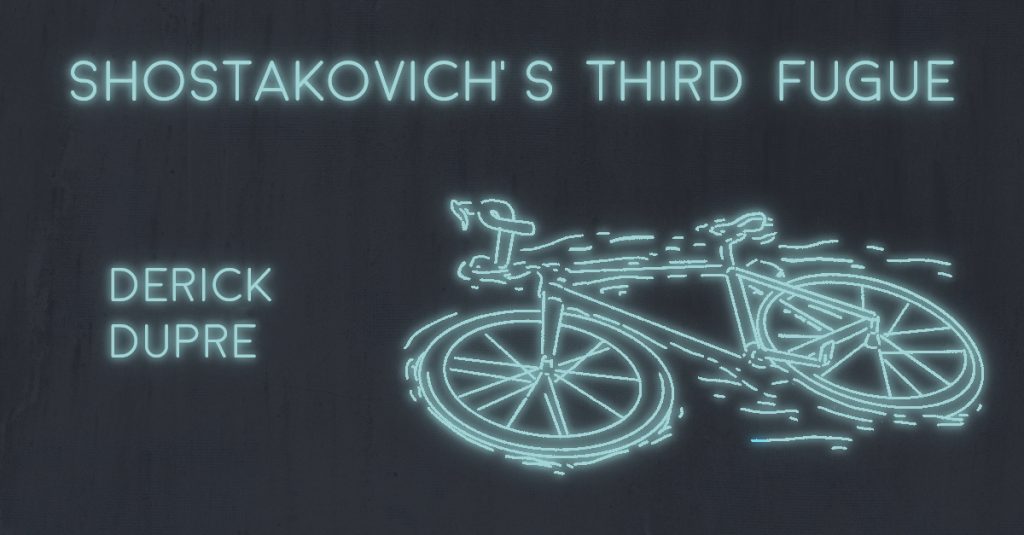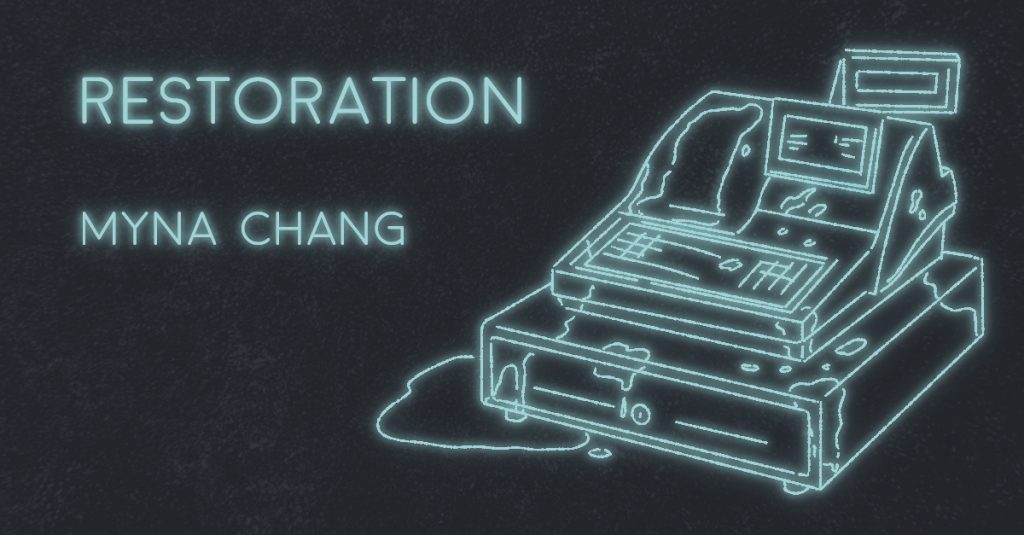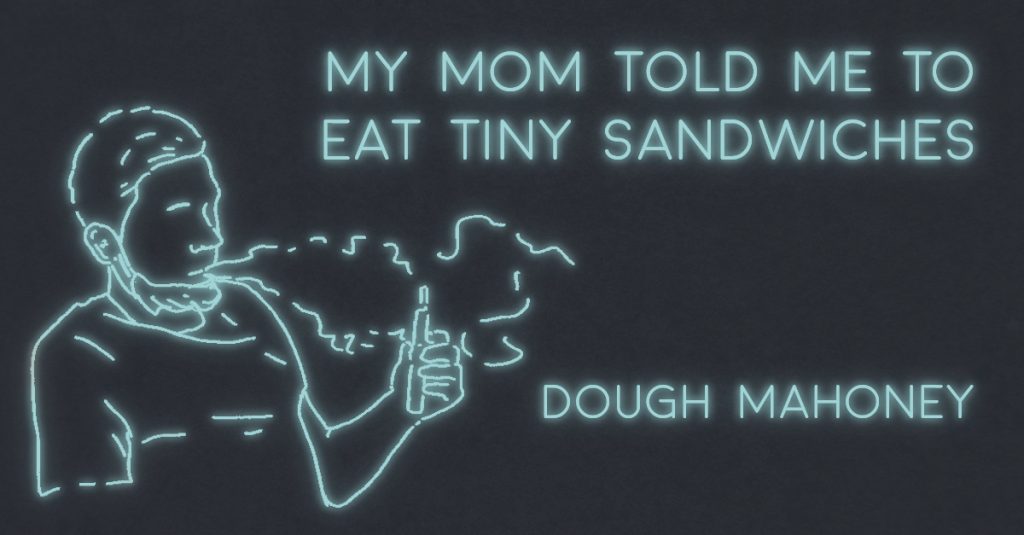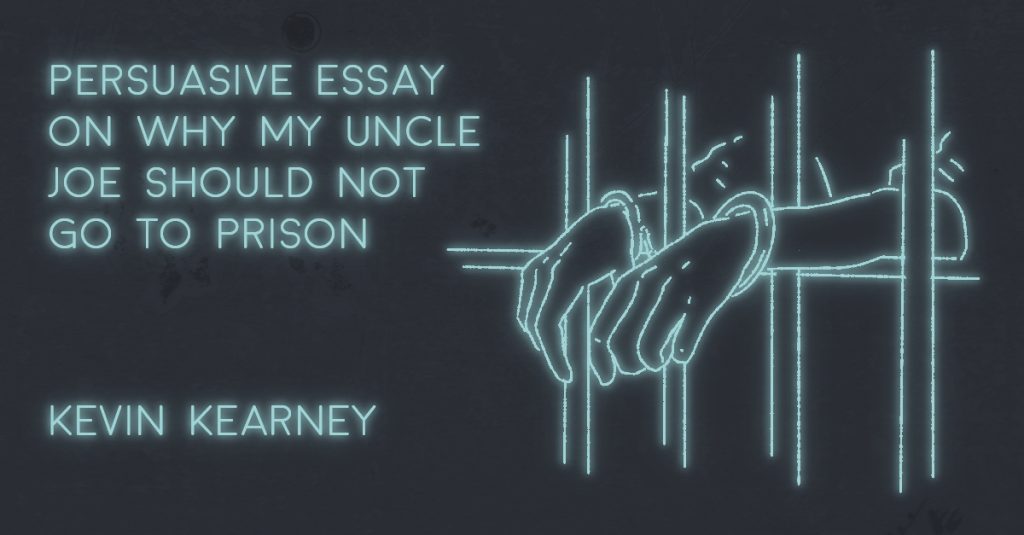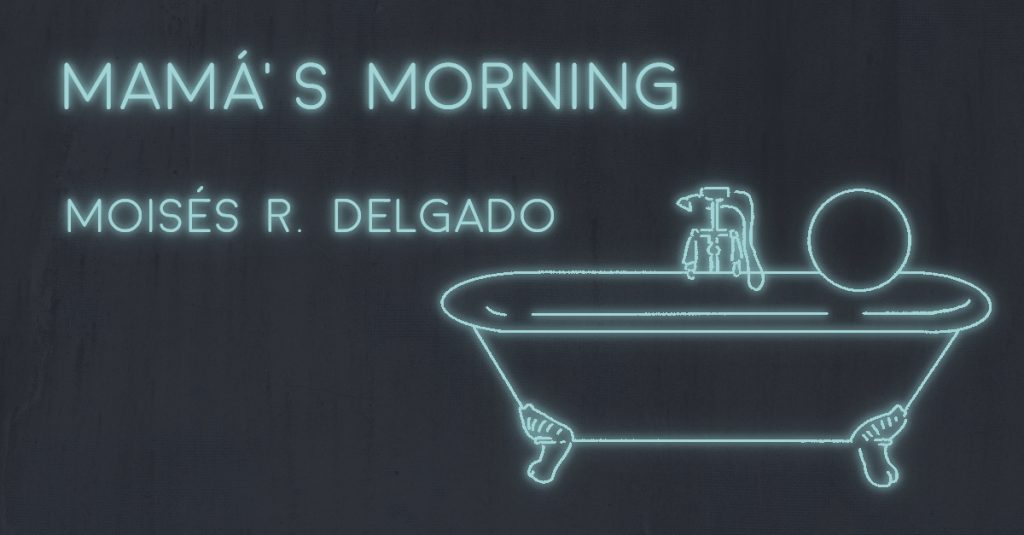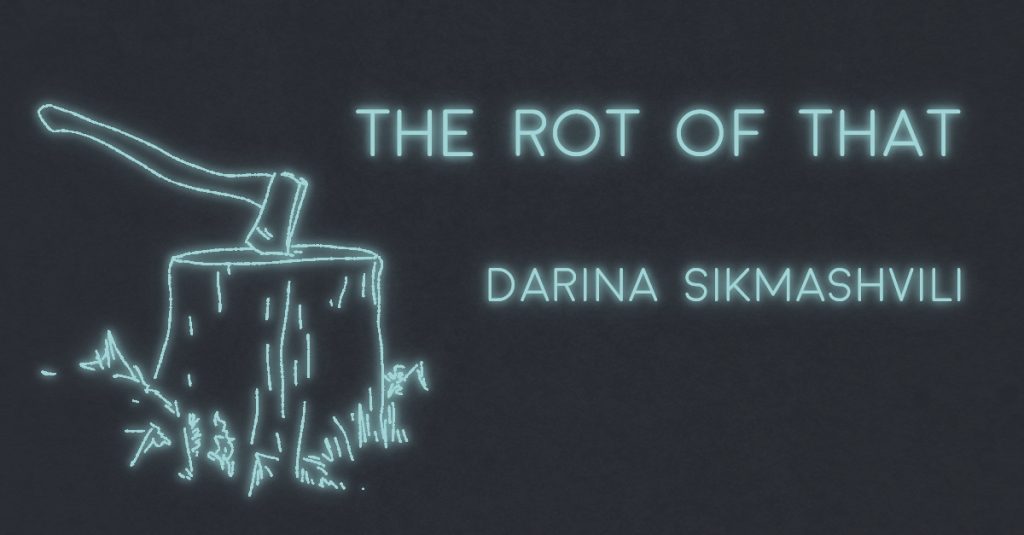
THE ROT OF THAT by Darina Sikmashvili
City women bucked when you tried to do a nice thing. To carry this or that, to open a door. To offer guidance in a terrain they weren’t used to. Danny remembered telling one young woman with a gristly attitude that she shouldn’t get too flustered about the noises at night. Houses out here make noise; nature is a talker. She was there to buy firewood. He was trying to do her a favor. But the girl just raked her tongue ring across her teeth and looked the other way. Danny wanted to reach into that mouth with his fingers…

